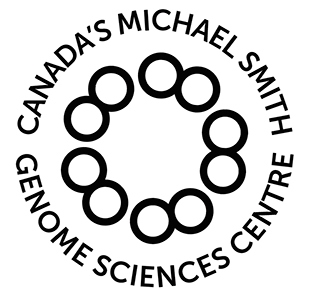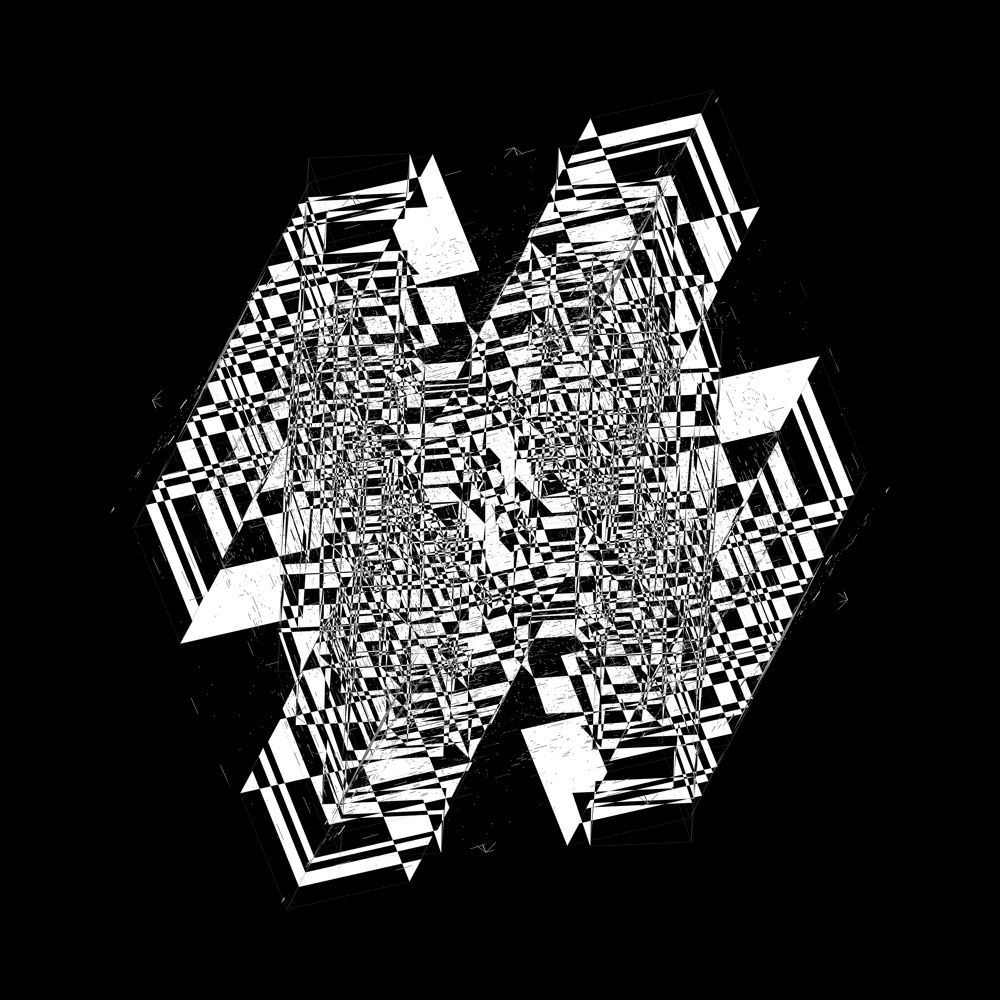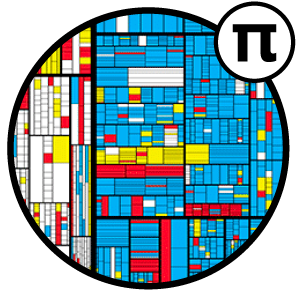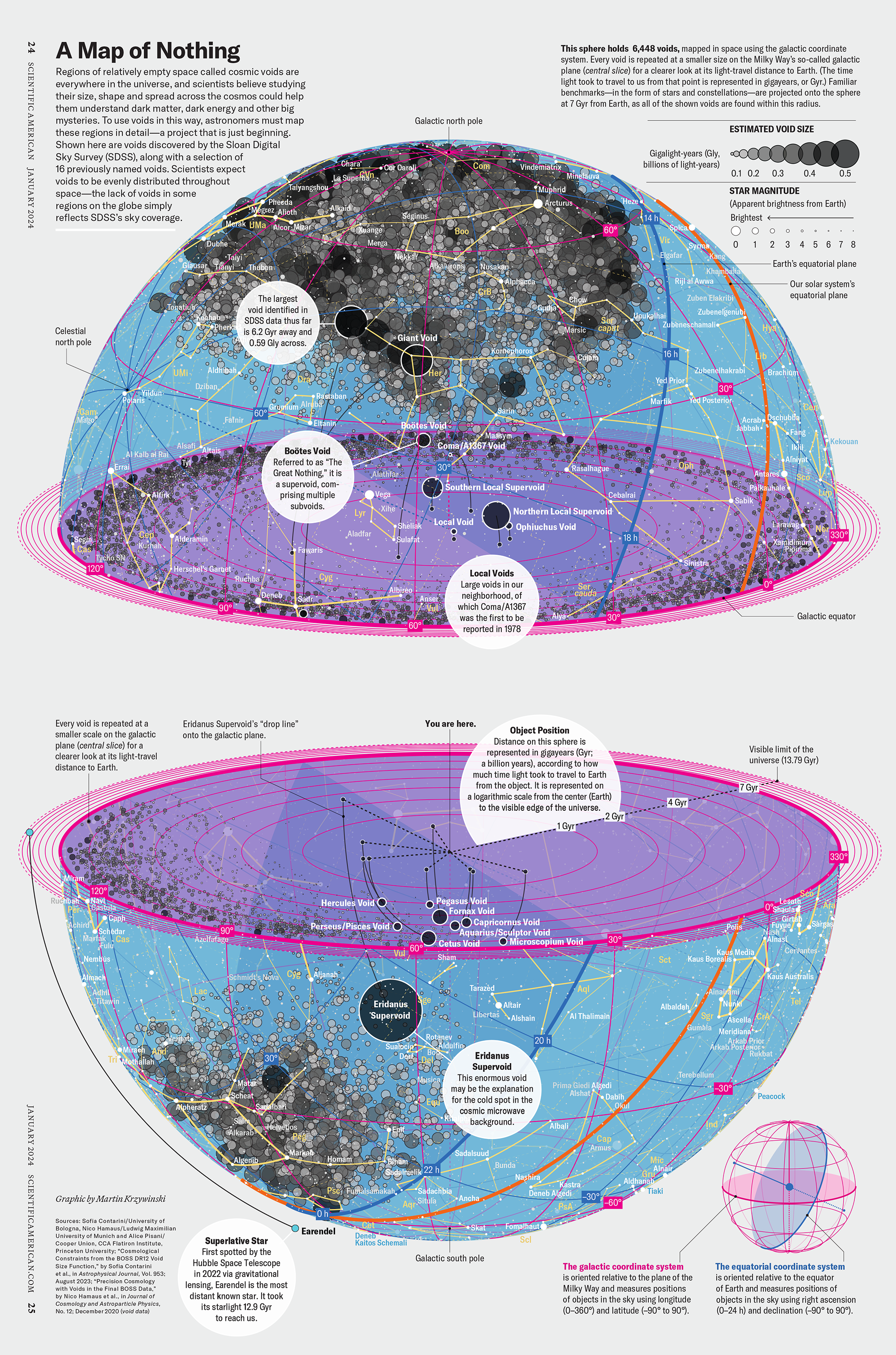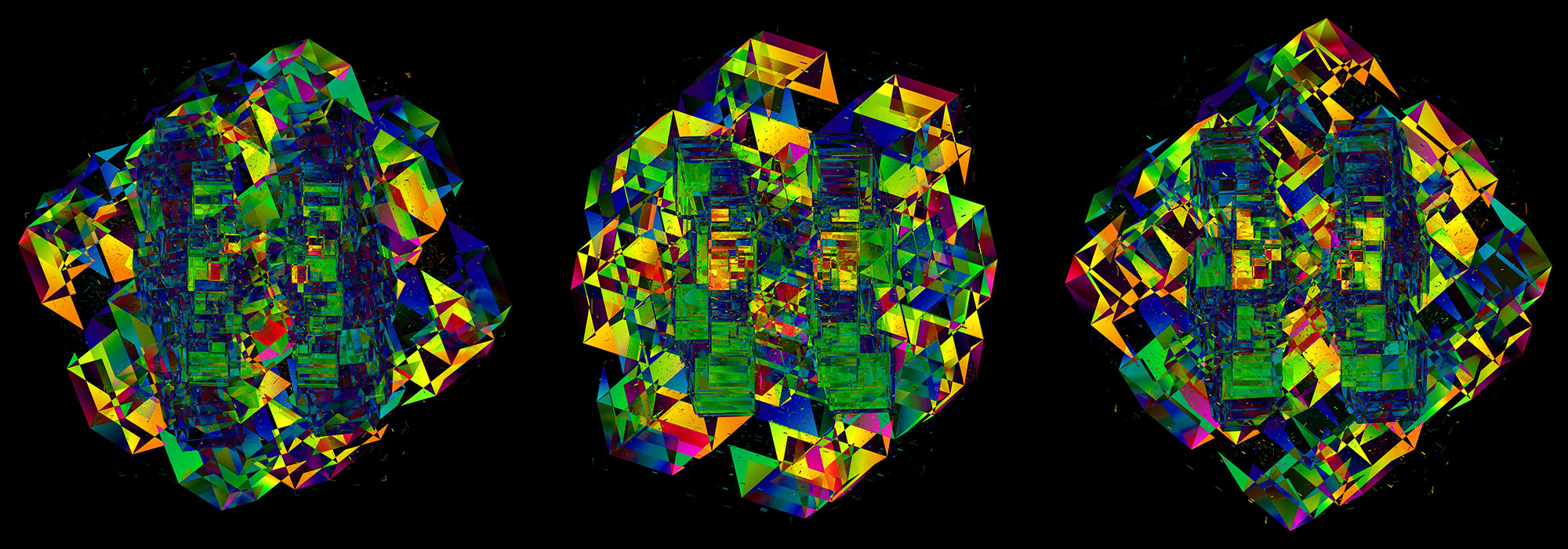
Max Cooper's Ascent — Making of the Music video
Enter the 5th dimension
contents
We know you're Yearning for the Infinite, but do you yearn for dimensions too?
Welcome to Ascent from Max Cooper's latest album Unspoken Words.
So, go ahead — ascend to higher dimensions. You may forget to come back.
An early version of the Ascent video premiered at Max's Live at the Acropolis show.
The video expands on visual elements first presented at the And& festival in Leuven.
The “Ascent” digital art collection by Max Cooper and Martin Krzywinski comprises vast images of transcendence in 75 million pixels on billboards in NYC, LA, Miami, London, Berlin and Leuven.
The collection is the latest of the NFT collections curated by Mesh Lab.
They look superb in print.
 buy artwork
buy artwork
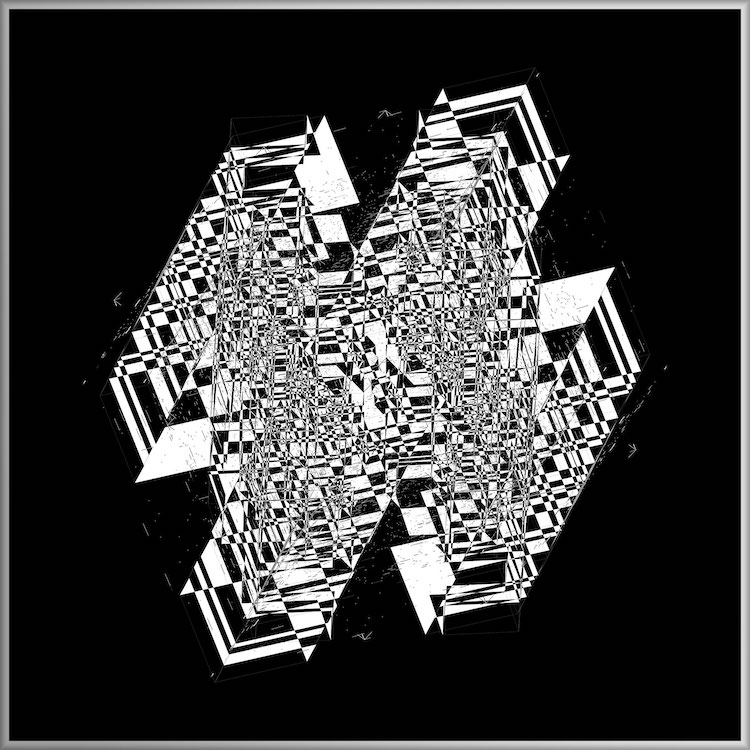
The video builds on work I did with Max for Transcendence from the Yearning for the Infinite, which itself was based on my 2015 Pi Day art.
In 5 minutes and 55 seconds (8,520 frames), the video takes you from zero to 5 dimensions and back again.
To help you interpret what you are seeing, I walk you through the video. I also present the animation system I built for the video, which was coded from scratch.
The entire animation is built up from about 170 keyframes. Each keyframe defines (a) which objects are shown (b) the dimensionality, size and rotation of each object and (c) the zoom and rotation of the camera itself.
The walkthrough will take you through some of the important keyframes in the video — where new elements are introduced or interesting things happen.

c c0 s [w] 0.815
c c0 s [xyz] 0.15
The keyframe definitions are shown in yellow boxes under the frame — these are commands that the animation system parses as it builds the scene over time. The grey boxes show position and zoom of the camera and the actual angles and sizes of objects.
Right now, all this looks confusing — not to worry, it will all be explained in the walkthrough!
If you like math to a heavy beat and a lot of screen flashing, check out Aleph, our 6 minute video on the story of transfinite numbers.
The video is unique in that it demonstrates Cantor's diagnoal argument to proove that rationals are countable and that reals are not countable.
Mesh was founded in 2016 to explore the intersection of music, science and art. With a growing global audience and engaged community of practitioners and activists, the platform has conceived work by leading creatives in the fields of music, digital art, film, installation, code, architecture, developing collaborations and commissions with business, arts and science institutions.
Typically, Mesh projects begin with a scientific stimulus which leads to a creative expression, incorporating a variety of digital media including AR, AI, VR, NFT, spatial audio as well as physical structures and live experiences. Collaborators and commissioners include The Babraham Institute, Zaha Hadid Architects, Dolby, L-Acoustics and PepsiCo, and have been exhibited and performances at Barbican Arts Centre, Odeon of Herodes Atticus at the Acropolis and will host an interactive art installation during Art Basel in Miami from 1—2 December.
Nasa to send our human genome discs to the Moon
We'd like to say a ‘cosmic hello’: mathematics, culture, palaeontology, art and science, and ... human genomes.
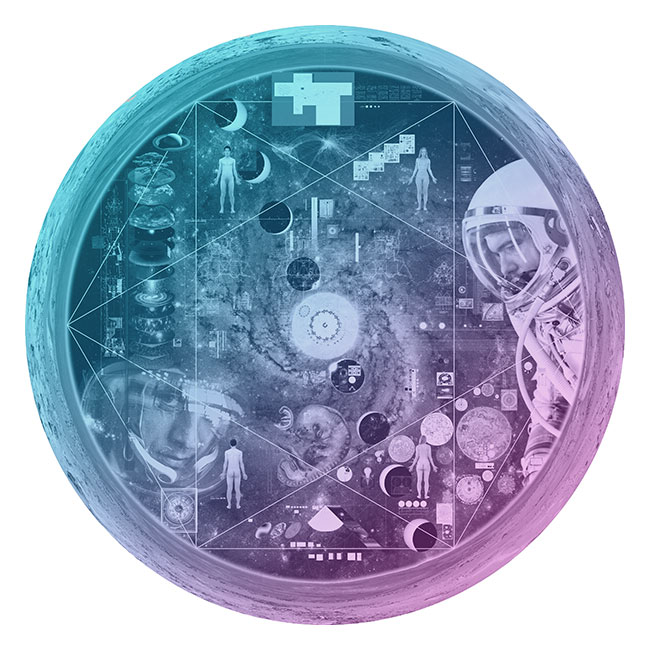

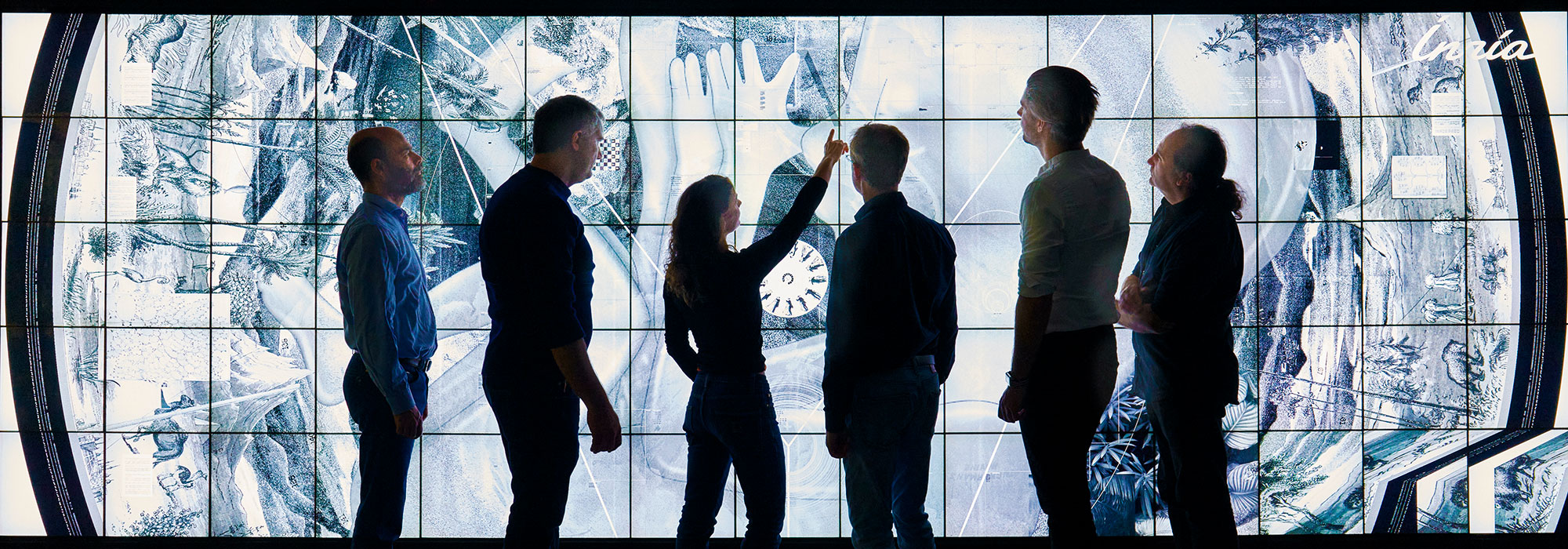
Comparing classifier performance with baselines
All animals are equal, but some animals are more equal than others. —George Orwell
This month, we will illustrate the importance of establishing a baseline performance level.
Baselines are typically generated independently for each dataset using very simple models. Their role is to set the minimum level of acceptable performance and help with comparing relative improvements in performance of other models.
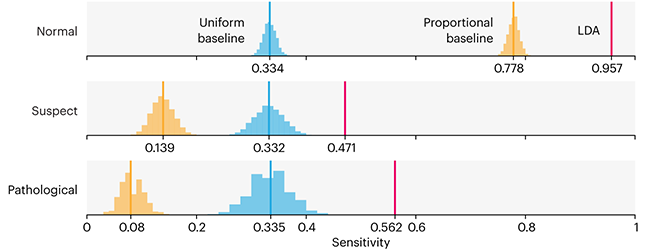
Unfortunately, baselines are often overlooked and, in the presence of a class imbalance5, must be established with care.
Megahed, F.M, Chen, Y-J., Jones-Farmer, A., Rigdon, S.E., Krzywinski, M. & Altman, N. (2024) Points of significance: Comparing classifier performance with baselines. Nat. Methods 20.
Happy 2024 π Day—
sunflowers ho!
Celebrate π Day (March 14th) and dig into the digit garden. Let's grow something.
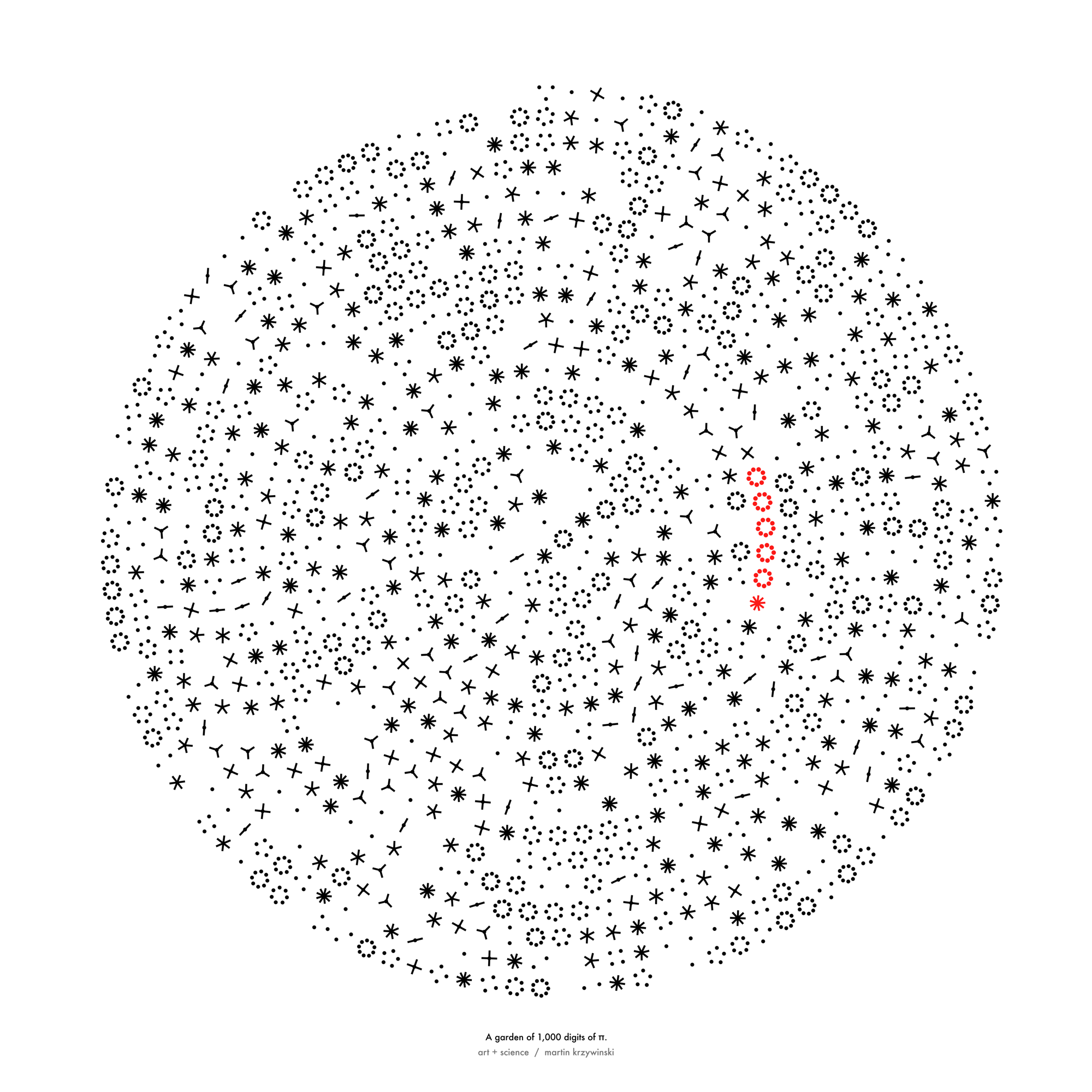
How Analyzing Cosmic Nothing Might Explain Everything
Huge empty areas of the universe called voids could help solve the greatest mysteries in the cosmos.
My graphic accompanying How Analyzing Cosmic Nothing Might Explain Everything in the January 2024 issue of Scientific American depicts the entire Universe in a two-page spread — full of nothing.
The graphic uses the latest data from SDSS 12 and is an update to my Superclusters and Voids poster.
Michael Lemonick (editor) explains on the graphic:
“Regions of relatively empty space called cosmic voids are everywhere in the universe, and scientists believe studying their size, shape and spread across the cosmos could help them understand dark matter, dark energy and other big mysteries.
To use voids in this way, astronomers must map these regions in detail—a project that is just beginning.
Shown here are voids discovered by the Sloan Digital Sky Survey (SDSS), along with a selection of 16 previously named voids. Scientists expect voids to be evenly distributed throughout space—the lack of voids in some regions on the globe simply reflects SDSS’s sky coverage.”
voids
Sofia Contarini, Alice Pisani, Nico Hamaus, Federico Marulli Lauro Moscardini & Marco Baldi (2023) Cosmological Constraints from the BOSS DR12 Void Size Function Astrophysical Journal 953:46.
Nico Hamaus, Alice Pisani, Jin-Ah Choi, Guilhem Lavaux, Benjamin D. Wandelt & Jochen Weller (2020) Journal of Cosmology and Astroparticle Physics 2020:023.
Sloan Digital Sky Survey Data Release 12
Alan MacRobert (Sky & Telescope), Paulina Rowicka/Martin Krzywinski (revisions & Microscopium)
Hoffleit & Warren Jr. (1991) The Bright Star Catalog, 5th Revised Edition (Preliminary Version).
H0 = 67.4 km/(Mpc·s), Ωm = 0.315, Ωv = 0.685. Planck collaboration Planck 2018 results. VI. Cosmological parameters (2018).
constellation figures
stars
cosmology
Error in predictor variables
It is the mark of an educated mind to rest satisfied with the degree of precision that the nature of the subject admits and not to seek exactness where only an approximation is possible. —Aristotle
In regression, the predictors are (typically) assumed to have known values that are measured without error.
Practically, however, predictors are often measured with error. This has a profound (but predictable) effect on the estimates of relationships among variables – the so-called “error in variables” problem.
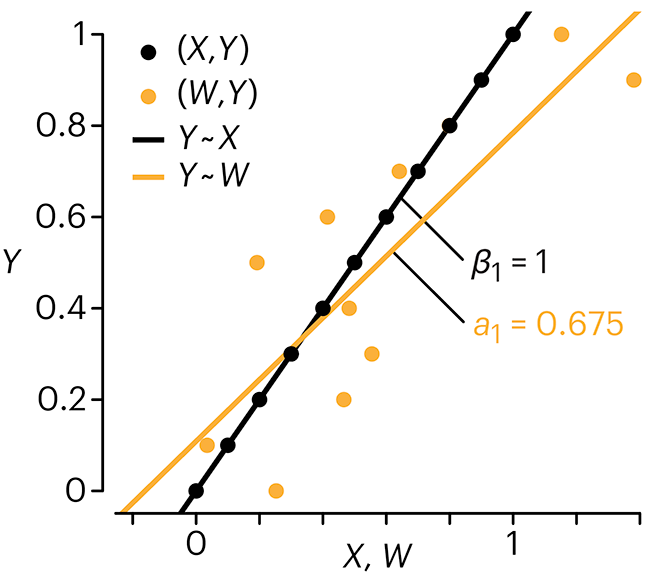
Error in measuring the predictors is often ignored. In this column, we discuss when ignoring this error is harmless and when it can lead to large bias that can leads us to miss important effects.
Altman, N. & Krzywinski, M. (2024) Points of significance: Error in predictor variables. Nat. Methods 20.
Background reading
Altman, N. & Krzywinski, M. (2015) Points of significance: Simple linear regression. Nat. Methods 12:999–1000.
Lever, J., Krzywinski, M. & Altman, N. (2016) Points of significance: Logistic regression. Nat. Methods 13:541–542 (2016).
Das, K., Krzywinski, M. & Altman, N. (2019) Points of significance: Quantile regression. Nat. Methods 16:451–452.
Convolutional neural networks
Nature uses only the longest threads to weave her patterns, so that each small piece of her fabric reveals the organization of the entire tapestry. – Richard Feynman
Following up on our Neural network primer column, this month we explore a different kind of network architecture: a convolutional network.
The convolutional network replaces the hidden layer of a fully connected network (FCN) with one or more filters (a kind of neuron that looks at the input within a narrow window).
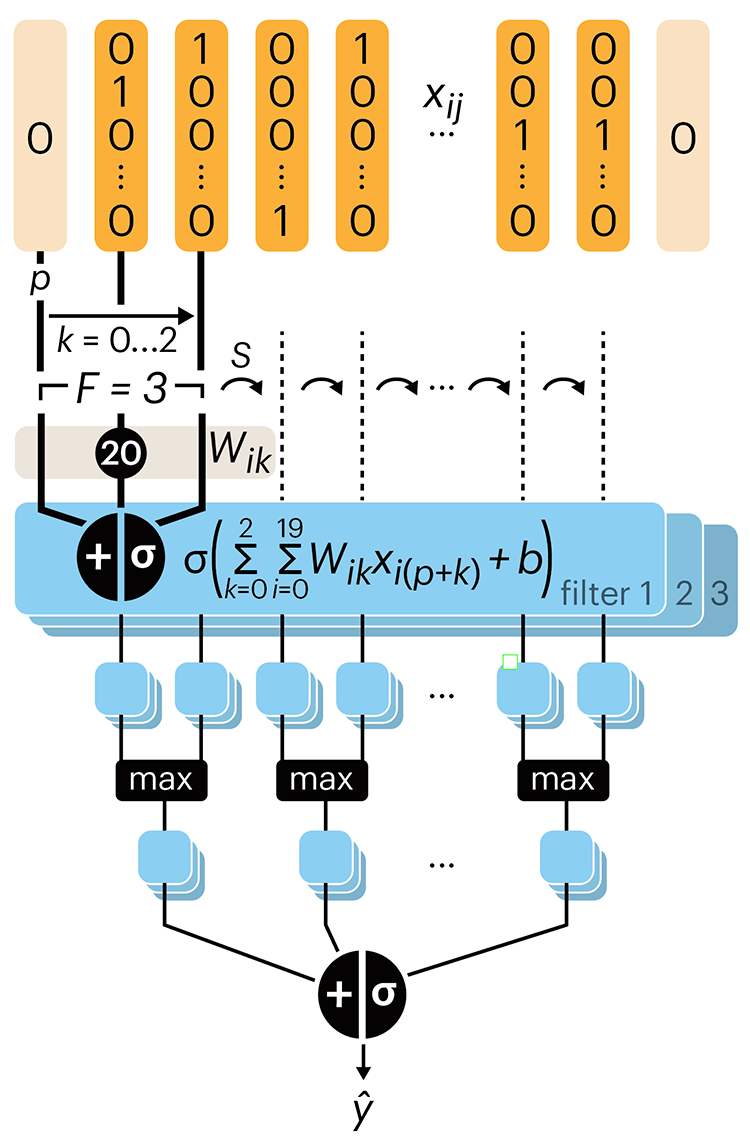
Even through convolutional networks have far fewer neurons that an FCN, they can perform substantially better for certain kinds of problems, such as sequence motif detection.
Derry, A., Krzywinski, M & Altman, N. (2023) Points of significance: Convolutional neural networks. Nature Methods 20:1269–1270.
Background reading
Derry, A., Krzywinski, M. & Altman, N. (2023) Points of significance: Neural network primer. Nature Methods 20:165–167.
Lever, J., Krzywinski, M. & Altman, N. (2016) Points of significance: Logistic regression. Nature Methods 13:541–542.
